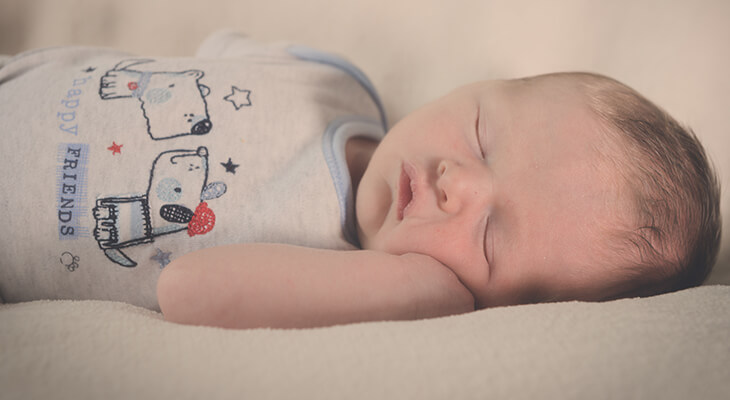SIDS Due to Accidental Suffocations Rises Sharply
Risk increases as more parents share beds with infants
In the 1990s, child safety experts launched a nationwide effort to save babies from sudden infant death syndrome (SIDS). It appeared to work, as the number of SIDS cases dropped significantly.
Unfortunately, that trend is now heading in the opposite direction. According to a new report, the rate of SIDS has become stagnant — or even increased in some areas — over the past 15 years. What’s even scarier, the report found that from 1999 through 2015, one category of SIDS — infant death rates from accidental suffocation and strangulation in bed — surged 184 percent.
Kentucky has one of the highest rates of SIDS. More than 155 out of 100,000 Kentucky babies will die from SIDS. That’s an increase of more than 17 percent when comparing 2013 to 2015 to the period from 2000 to 2002. In Indiana, SIDS increased more than 9 percent at 98.3 deaths per 100,000 babies.
Keep children safe using the ABCs
Parents, grandparents and caregivers need to follow the ABCs of sleep: Babies should sleep Alone, on their Backs, in a safe Crib.
“This is a major problem,” said Erika Janes, R.N., with Norton Children’s Prevention & Wellness. “In Jefferson County alone we’re losing one to three babies a month due to an unsafe sleeping environment or being positioned for sleep on their stomach.”
Read more: Less than half of mothers put babies to sleep correctly
Co-sleeping cited as leading cause of SIDS
The leading causes for these deaths is co-sleeping or falling asleep on a couch or chair with a baby. A large percentage of babies who die from SIDS are found with bedding covering their head.
“Despite the warnings, many parents continue to put babies in bed with them,” Janes said. “Evidence shows sleeping on a separate, safe surface lowers the chance of SIDS by as much as half.”
While SIDS might not be completely preventable, the American Academy of Pediatrics recommends the following guidelines for safe sleep:
- Place the baby on his or her back on a firm sleep surface, such as a crib or bassinet with a tight-fitting sheet.
- Avoid using soft bedding, including crib bumpers, blankets, pillows and soft toys. The crib should be bare.
- A baby can share a bedroom with parents, but not the same sleeping surface.
- Never leave a baby sleeping on a bed, sofa, armchair or other sitting device, including a car seat.
- Breastfeed for at least six months when possible. It’s associated with a lower chance of SIDS.
- Avoid sleep-positioning devices.
- Keep your baby away from cigarette smoke and don’t smoke while pregnant.

Posted February 20, 2018 Newsjacking, Norton Children’s Prevention & Wellness
